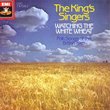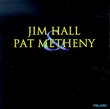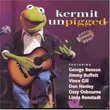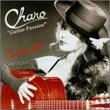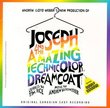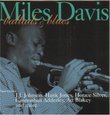| All Artists: Philip Glass, Donald Joyce Title: Philip Glass: Organ Works Members Wishing: 0 Total Copies: 0 Label: RCA Release Date: 9/14/1993 Genres: Dance & Electronic, Classical Styles: Opera & Classical Vocal, Ballets & Dances, Ballets, Forms & Genres, Improvisation, Historical Periods, Modern, 20th, & 21st Century Number of Discs: 1 SwapaCD Credits: 1 UPC: 090266182527 |
Search - Philip Glass, Donald Joyce :: Philip Glass: Organ Works
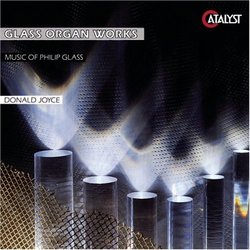 | Philip Glass, Donald Joyce Philip Glass: Organ Works Genres: Dance & Electronic, Classical
|
Larger Image |
CD DetailsSimilarly Requested CDs
|
CD ReviewsMajestic! ADP | Washington, DC USA | 10/18/1999 (5 out of 5 stars) "Philip Glass has a reputation as a minimalist, but there is something maximalist--in fact, something downright grand--about the simple structures and intricate repetitions of these pieces. The excerpt from "Satyagraha" (hope I spelled that correctly) is so grand that it seems like coronation music; it also says its say relatively quickly, making it perhaps the best introduction to Glass for the uninitiated. The first two track, "Dance for Organ" and "Mad Rush," accumulate their power more slowly, richly rewarding a patient listener. Buy this CD!" Philip Glass' Organ Works Kevin Currie-Knight | 08/24/1999 (5 out of 5 stars) "As an organist, I was much impressed by this recording. Donald Joyce does a fabulous job in his interpretation of the works of Philip Glass. To those who like organ music, I would encourage you to buy this CD. This recording is not for everyone. However, to those who like organ music and the music of Philip Glass, this recording has much to commend it." Good Concept, but Much Gets Lost in the Grandeur! Kevin Currie-Knight | Newark, Delaware | 07/30/2004 (3 out of 5 stars) "This CD is an interesting concept. Take Philip Glass's best known organ works and instead of using a Farfeeza organ, play them on a big church-like pipe organ in a cathedral. And to be honest, in some ways, it is a winning combination. One gets away from Glass's mathematically precise minimalism and infuses these peices with a more romantic and grand feel. But while this idea produces its share of moments, something just didn't feel quite right. Thus, sadly I have to detract from the below 5 star reviews and give the CD a solid 3.
Why? Anyone who has heard the original recordings of Dance II and IV know that these peices are not only amazingly technical, but have a mathematical intricacy that only adds to their beauty (polyrhythms abounding). The problem, then, was that when played on a pipe-organ in a hall with quite large reverberation, much of that intricacy gets lost and muddled. Thus, it is hard to follow along during some of the more rhythmically technical parts of some of the pieces, and while the overall feel is still good, the detail gets lost. This is not too bothersome in two of the pieces in particular: The finale of Satyagraha, and Mad Rush (though I must admit that the chord changes of Dance IV sound amazing in a hall). Still, I couldn't help coming away from the other pieces feeling like something - some of the details - were unjustly stripped (especially Dance II which is a favorite of mine in its original version). So if you are looking for Glass's organ works with a new and more robust feel, this is a good CD to get. If you are not familiar at all with his organ works, check out "Dance 1-5" which will give you a good feel and get this CD, possibly, afterwards. But if you are in love with the mathematical precision and detail in Glass's organ works, beware that the production on this CD leaves much to be desired." |

 Track Listings (5) - Disc #1
Track Listings (5) - Disc #1


